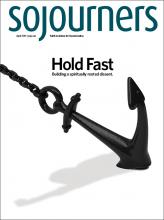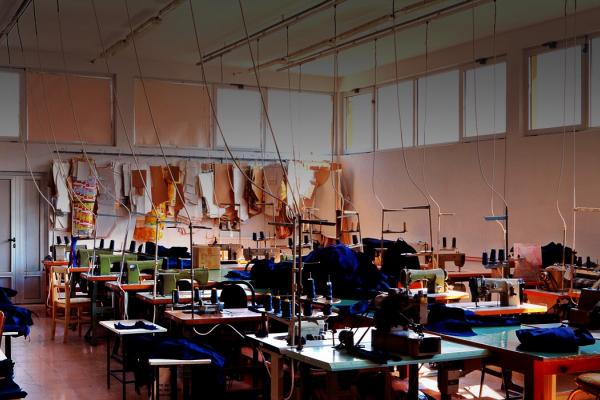JUST AFTER LUNCH, Eulalia Francisco shows Molly Hemstreet two pieces of white elastic bands, one of them slated for use as waistbands in a batch of woolen children’s pajamas being cut and sewed by the North Carolina-based, worker-owned cooperative Opportunity Threads.
Francisco, who had just two years of formal schooling in her native Guatemala, has noticed the elastic recommended for the sewing job is not the best choice for these pajamas. She recommends another elastic band.
Francisco is “our master sewer,” says Hemstreet, founder of Opportunity Threads, who agrees with Francisco’s suggestion and immediately orders the correct elastic.
After four years together, Francisco and Hemstreet, both worker-owners of Opportunity Threads, have a strong, trust-based working relationship. Hemstreet, an Episcopalian, earns the same wage as the other worker-owners and sees Opportunity Threads as having a spiritual component. “Before I met my husband, I thought deeply about going into cloistered work,” Hemstreet says. “I think of that whole thing of prayer and work, and that’s how I come here every day. We’re not making icons, but we’re doing work, and we do things in a joyful, prayerful way.”
The co-op grew from humble beginnings. After completing degrees in Spanish and Latin American studies at Duke University, Hemstreet moved with her husband, Francisco Risso, back to her hometown of Morganton, N.C., to open a Catholic Worker House. The local chicken plant hires many Latinos, but the work is hard and tedious, the pay not nearly a livable wage. So Hemstreet, with no formal training in business, explored the world of cooperatives, thinking it might be a good path to more meaningful and dignified employment for the Latino community.
Read the Full Article

